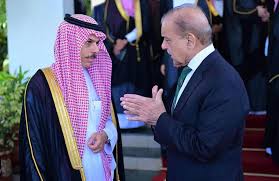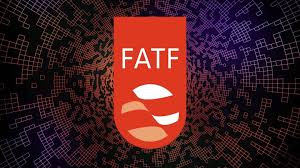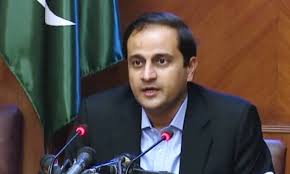ISLAMABAD: The International Monetary Fund (IMF) has expressed serious concerns over Pakistan’s failure in operationalising the Treasury Single Account (TSA-1) under which Islamabad had to close down the accounts of federal and provincial governments into private commercial banks with whopping deposits of Rs2,900 billion it was reported on Monday.
The IMF hinted at bringing attached autonomous bodies and entities, including those belonging to the Ministry of Defense and the armed forces, as part of the structural benchmark of $6 billion Extended Fund Facility (EFF).
Under the Treasury Single Account (TSA)-1, Pakistan already agreed with the IMF to withdraw Rs2,900 billion from commercial banks and shift it into the Federal Consolidated Fund (FCA) known as the account number of the federal government with the State Bank of Pakistan.
However, the all-powerful ministries, including the Ministry of Defense and others, had not yet accomplished such assigned tasks within the stipulated time-frame.
Now the IMF is moving one step ahead to make the TSA-2 as part of a structural benchmark under which all attached autonomous departments, including those affiliated with the Ministry of Defence and armed forces, would also be required to shift their deposits into federal consolidated fund.
The amount of Rs1,665 billion of different federal ministries and divisions are lying into commercial banks’ accounts while over Rs1,100 billion of provincial governments is also deposited into private commercial banks.
Now the IMF, under TSA-2, is asking the attached departments of ministries/divisions such as NHA, OGDC, FWO, NLC, SCO and others to follow the same rules and shift their deposits into consolidated accounts.
Commercial banks are earning huge profits on deposited money of Rs2,900 billion of federal and provincial governments as there is a spread of 4 to 5% because they were investing into T-bills and charging more from the government, so conservative estimates suggest that the government was losing Rs150 billion on per annum basis because of this mismanagement.
Departments would not easily agree to shift their deposits
It isn’t a simple issue because the ministries/divisions and attached departments would not easily agree to shift their deposits into the consolidated fund as they wanted to bypass the Ministry of Finance and AGPR when they required funds.
“It is a grave concern of the IMF because Islamabad failed to operationalise the TSA-1,” top official sources confirmed.
The Ministry of Finance had submitted its plan before the IMF higher-ups during the ongoing inconclusive review talks. Under the existing $6 billion Extended Fund Facility (EFF), there was a structural benchmark for May 2021 that the minister for finance will establish and make functional the TSA-1.
The Ministry of Finance has shared a roadmap with the IMF to make TSA-1 fully functional and stated that it required at least two years to make it happen. But now the IMF is moving forward and asking the government to bring TSA-2 by forcing all attached departments to shift their deposits from commercial banks into the consolidated fund.
“The IMF may bring TSA-2 as part of structural benchmark under the existing $6 billion EFF program,” said official sources.
There is a debate whether the receipts of autonomous bodies are part of the federal consolidated fund or not but the Ministry of Finance considered it as part of the consolidated fund.
This scribe contacted the IMF’s resident chief in Pakistan, Teresa Daban Sanchez, on Sunday and inquired whether the TSA-2 was a part of the structural benchmark, she replied, “So you should know by now that adopting the TSA is part of reforms identified by the Government of Pakistan as a way of improving public financial management. Most countries have TSA in place. Pakistan is just catching up to its peers,” she added.
The IMF, in its last staff, report stated that while some steps have faced delays, the (Pakistani) authorities are committed to achieving a functional single treasury account (TSA-1) by May 2021 (new end-May 2021 SB), move swiftly to TSA-2 and improve, with EU’s assistance, their annual and multi-annual commitments control systems.
Improving the budget process to achieve greater spending efficiency and control remains another priority.
On Public Finance Management (PFM) reforms, the IMF staff report further stated that while we have advanced on some elements of our PFM reform strategy (including the establishment of a macro-fiscal unit in the MoF for proper identification and monitoring of macroeconomic and specific fiscal risks), more needs to be done.
“In line with our PFM Act, we presented the mid-year budget review to the National Assembly in February 2020 (end-February 2020 SB) and February 2021. Going forward, we plan to intensify our efforts to establish a treasury single account (TSA-1).
“In September 2020, we prepared and shared the accounts level data with public sector entities (MDAS) for arranging closure of the accounts and transfer of funds to TSA-1. This will allow us to establish the TSA-1 and make it functional by end-May 2021 (new end-May 2021 SB). We have also initiated work on the TSA-2. Moreover, to strengthen budget execution and expenditure controls, we will with the assistance of the EU, develop guidelines related to annual and multi-annual commitments control systems by end-March 2021, the IMF report concluded.”
















































